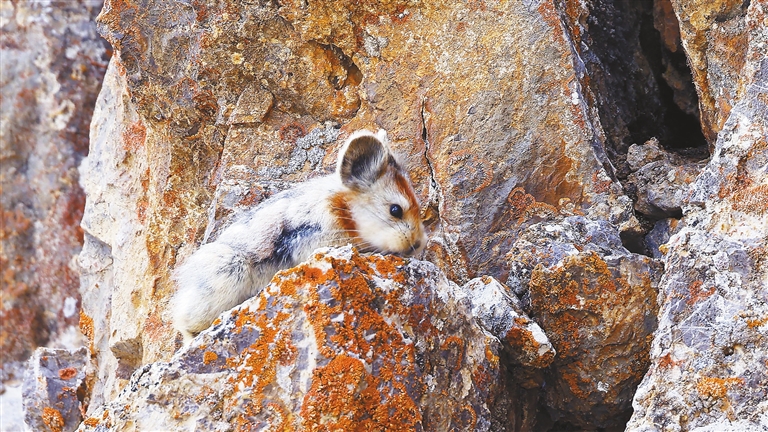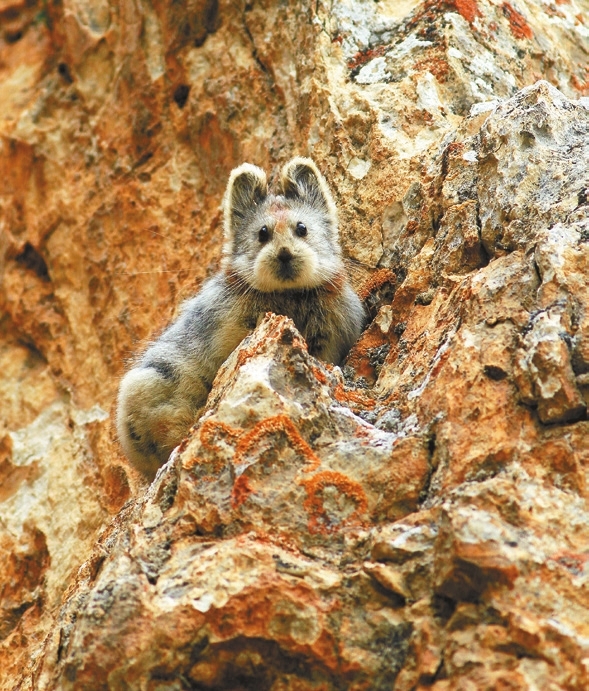

AN Ili pika has been spotted by a volunteer team in the mountain areas of Jinghe County, located in the Xinjiang Uyghur Autonomous Region. Resembling a rabbit and a mouse, Ili pikas are endemic to Xinjiang and usually live at high elevations from about 2,800 to 4,100 meters. The furry animals like to inhabit rocky areas, including mountain peaks and inland cliffs. They are used to living on the extremely cold plateau and mainly feed on rhodiola, snow lotus, and creeping saxifrage, found in the Tianshan Mountains. The Ochotonidae animal is a beautiful creature with generally bright coloration and has big rusty-red spots on the forehead, the top of the head and the sides of the neck. The hair color behind its round ears and on the nape is pale. Adults are more than 200 millimeters long. The lifespan for an Ili pika is up to seven years. In July 1983, when Chinese conservationist Li Weidong was conducting fieldwork for the local health and epidemic prevention authority, he noticed a small creature emerging from a gap between large rocks in the mountains in the Ili Kazak Autonomous Prefecture. Li, who was familiar with rodents, was unable to discover any records relating to it. In 1986, the animal was recognized as a new species, so Li decided to call it Ili pika and devote himself to its conservation. There are less than 1,000 Ili pikas remaining, making them rarer than giant pandas. In 2008, the animal was listed as endangered by the International Union for Conservation of Nature. The population of this endangered animal is decreasing due to livestock farming and ranching as well as climate change and severe weather. With the decline of grasslands in the Tianshan Mountains, herdsmen have to walk their herds in higher mountain ranges, attracting more predators to Ili pikas. Habitat loss has also pushed the species to the brink of extinction. In 2015, Li set up a workshop on the protection and conservation of Ili pikas and established two sanctuaries for the animal with the help of the local government. Many local herdsmen volunteer to help set up cameras and prevent poaching. (Xinhua, China Daily, CGTN) | 
